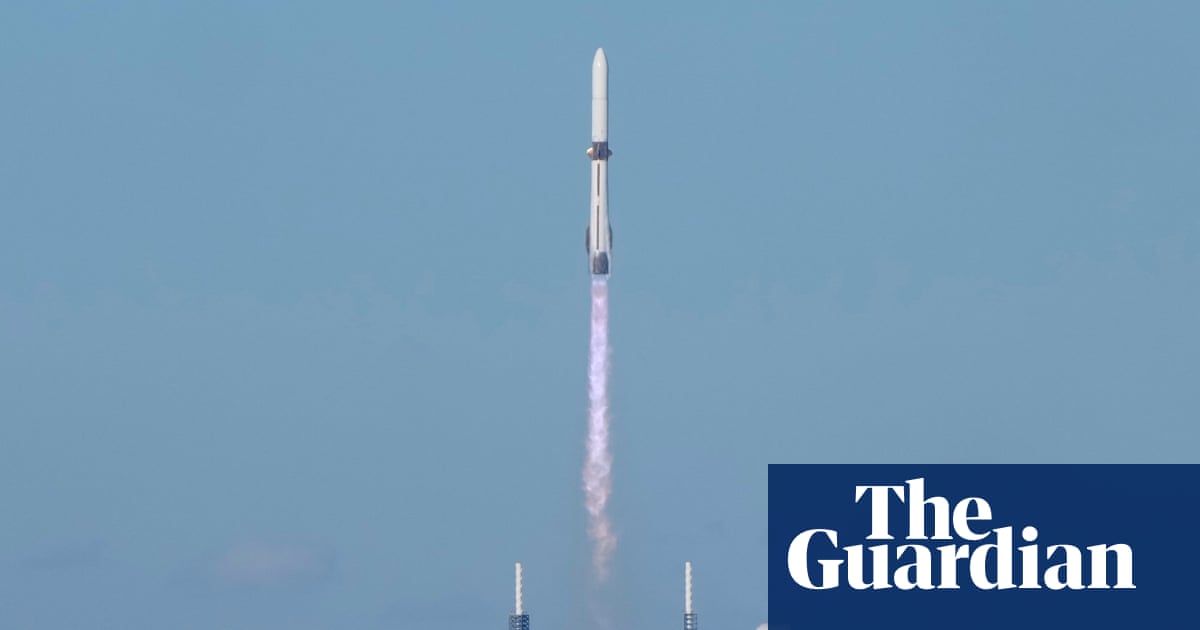
"Blue Origin successfully launched its huge New Glenn rocket on Thursday with a pair of Nasa spacecraft destined for Mars. It was only the second flight of the rocket that Jeff Bezos's company and Nasa are counting on to ferry people and supplies to the moon. The 321ft (98-meter) New Glenn blasted into the afternoon sky from the Cape Canaveral space force station, sending Nasa's twin Mars orbiters on a long journey to the red planet."
"In a first for the fledgling company, Blue Origin recovered the booster following its separation from the upper stage and the Mars orbiters, an essential step to recycle and slash costs similar to how SpaceX rockets work. Company employees cheered wildly as the booster landed upright on a barge 375 miles (600km) offshore. An ecstatic Bezos watched the action from launch control. Next stop, moon! employees chanted following the booster's bull's-eye landing."
"the two Mars orbiters in space, the mission's main objective. The New Glenn's inaugural test flight in January delivered a prototype satellite to orbit, but failed to land the booster on its floating platform in the Atlantic. The identical Mars orbiters, named Escapade, will spend a year hanging out near Earth, stationing themselves 1m miles (1.5m kilometers) away. Once Earth and Mars are properly aligned next fall, the duo will get a gravity assist from Earth to head to the red planet, arriving in 2027."
Blue Origin launched its 321ft New Glenn rocket carrying two identical NASA Mars orbiters named Escapade. Liftoff was delayed four days by inclement weather and solar storms that produced auroras as far south as Florida. The company recovered the booster upright on a barge 375 miles offshore, marking its first successful booster return and enabling cost savings through reuse. The twin orbiters will spend about a year near Earth before using a gravity assist next fall to travel to Mars and arrive in 2027. The spacecraft will map Mars's upper atmosphere and magnetic fields to study atmospheric escape and inform protection strategies. The New Glenn is intended to support future lunar transport of people and supplies, and its inaugural test flight had delivered a prototype satellite but failed to recover the booster.
Read at www.theguardian.com
Unable to calculate read time
Collection
[
|
...
]